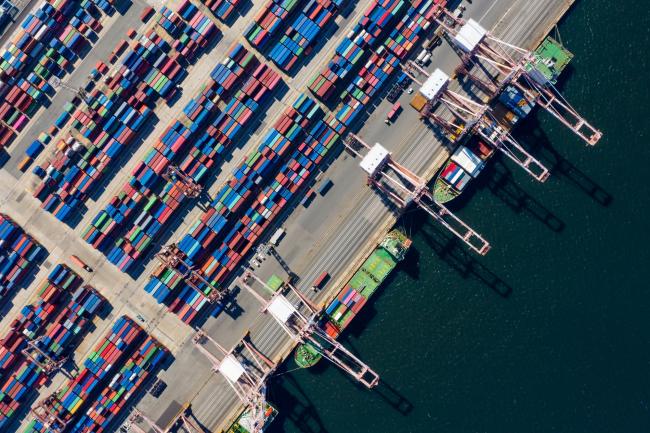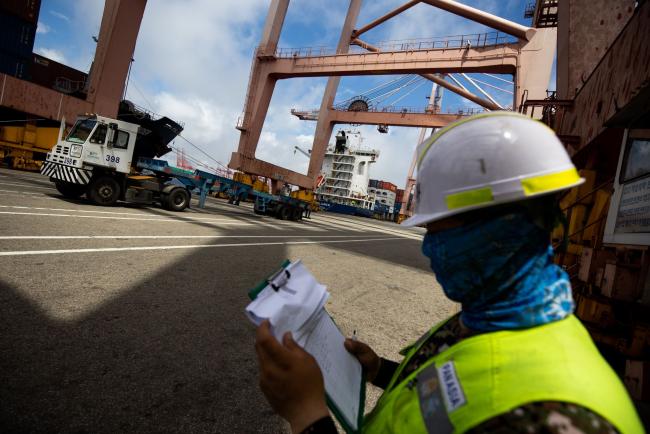(Bloomberg) -- South Korea’s exports plunged the most in almost four years while consumer prices failed to rise for a third straight month, highlighting continued pain in this Asian bellwether for global trade.
China’s slowing economy and its trade war with the U.S. have hit South Korean exports ranging from memory chips to petrochemicals, putting the economy on course for the slowest expansion in a decade. Inflation at zero shows demand remains sluggish despite fiscal stimulus and monetary easing.
Both exports and imports fell about 15% in October from a year earlier, pushed down by a slide in shipments to the world’s two biggest economies. Consumer prices recovered from a 0.4% drop in September, but stalled price movements remains far below the central bank’s 2% inflation target.
A recent uptick in semiconductor prices and a decline in inventories had offered glimmers of hope that the tech cycle might be bottoming out, which would spur South Korea’s exports recovery. Friday’s data offered a setback to that optimism, with semiconductors shipment plunging 32% from a year earlier.
“It’s not a pretty picture, but we’ve seen a bad one for quite some time now.” said Moon Hong-cheol, a strategist at DB Financial Investment in Seoul. “There’s still anticipation that chips will rebound and if they do, we could start seeing exports falling by a single-digit number.”
South Korea is home to Samsung Electronics (KS:005930) Co., a key link in the global supply chain. The economy ships everything from smartphones to memory chips, two major sources of income that have been among the hardest hit in the trade war between the U.S. and China.
Weak Vitality
The steep cut in overall imports reflects private consumption still slumping in South Korea and dovetails with flagging inflation numbers, Moon said. Finance Minister Hong Nam-ki said last month that “vitality” in the private sector was the weakest since the global financial crisis.
South Korea’s economic growth slowed in the third quarter and the Bank of Korea has supported the economy with two interest-rate cuts this year to 1.25%, matching a record low.
“The BOK will feel less pressure to cut rates with inflation coming out better than surveyed,” An Young-jin, an economist at SK Securities, said, still expecting the bank to lower its key interest rate early next year. Economists surveyed by Bloomberg had expected a 0.3% slide in prices.
A full-fledged recovery for South Korea’s economy will depend not only on tech demand, but also on whether President Donald Trump follows through with his willingness to strike a deal with China.
“Expectation is high for a deal between the U.S. and China and if the improvement in relations continues, South Korean exports should rebound in the first quarter next year,” said Mun Byung-ki, a researcher at the Korea International Trade Association. Moon added that the steep fall in October exports was partly statistical, given a 23% jump in shipments a year earlier, the most in 2018.
Recovery Expected
Exports to China dropped 17% in October while those to the U.S. fell 8.4%, according to data from South Korea’s trade ministry. Shipments of petrochemicals fell 23%, but overseas sales of computer and vessels performed well with positive growth.
The pace of exports decline will gradually narrow from November, the trade ministry said. An expected recovery in chip prices and a potential “phase 1” trade deal between the U.S. and China were among reasons cited by the ministry as leading to an exports expansion in the first quarter of 2020.
(Adds chart, economist comments)

